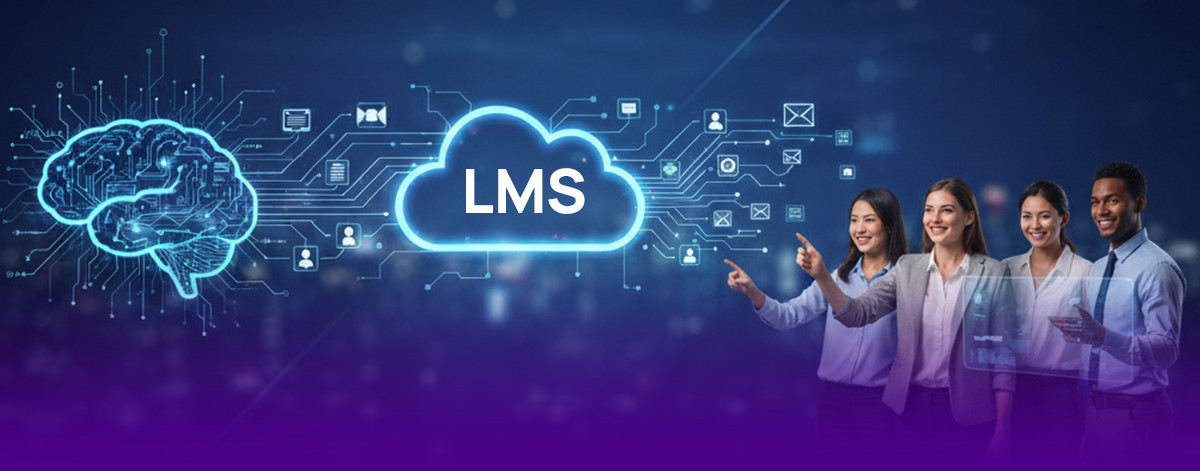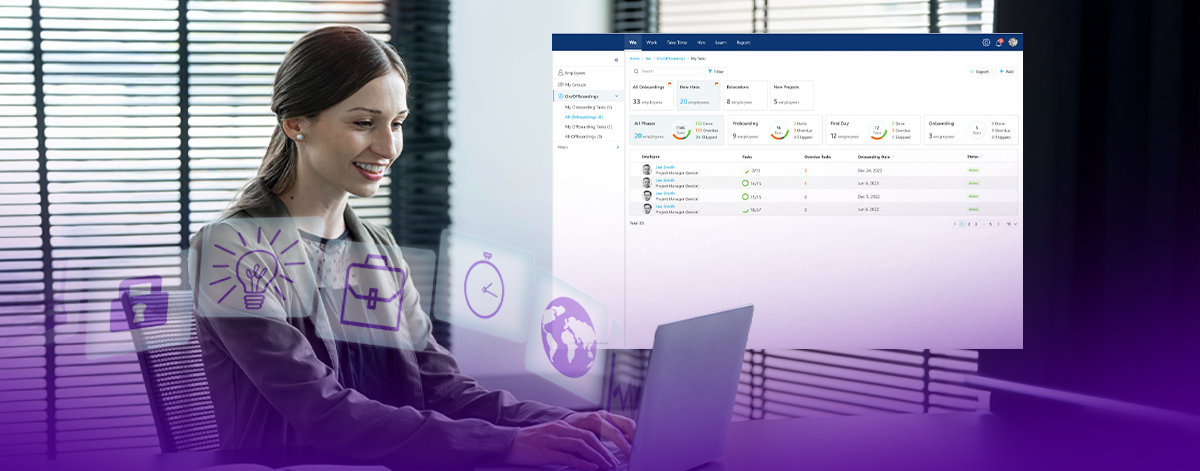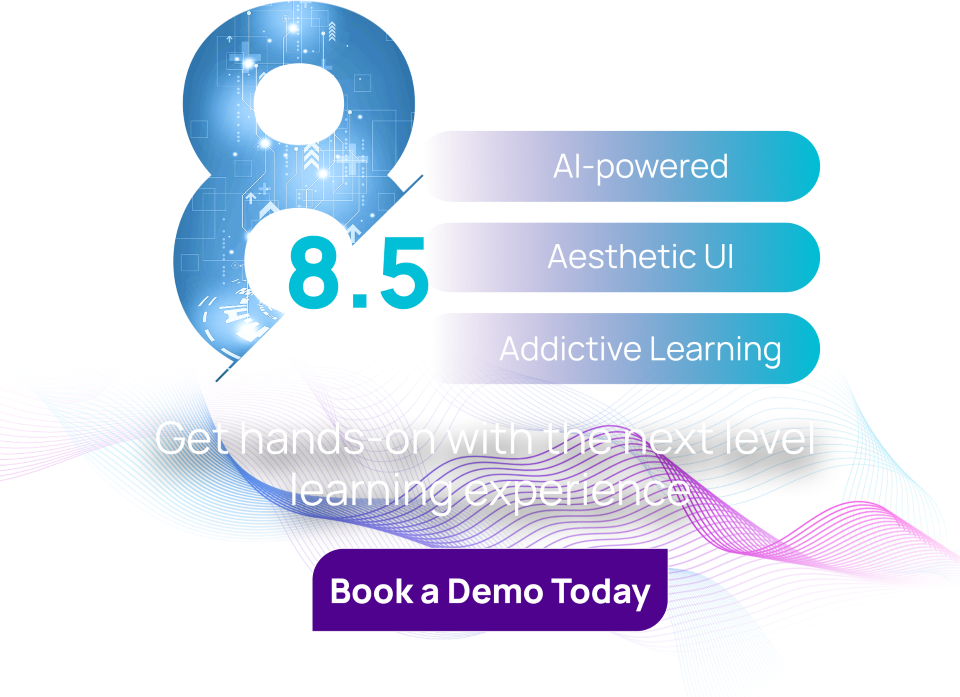
Best Employee Onboarding Software for 2025
October 10, 2025
Gamified Learning Platforms: Engaging Employees Effectively
October 10, 2025The learning and development (L&D) landscape is evolving at an unprecedented rate. Static e-learning modules and clunky, on-premises systems can no longer meet the needs of today’s workforce. Organizations want scalable, flexible, and intelligent solutions, and that’s where LMS as a Service steps in.
This modern approach has redefined how enterprises deliver, manage, and measure learning. But what exactly is it, and why are so many businesses making the switch to cloud LMS platforms and hosted learning solutions? Let’s explore.
What is LMS as a Service?
Traditionally, companies invested in an LMS as software they had to buy, install, and maintain in-house. This came with high costs, limited scalability, and a constant burden on IT teams.
LMS as a Service (LMSaaS) changes that model. It’s a cloud-based, subscription-driven learning platform that delivers training and development tools as a managed service. Think of it as the learning equivalent of how organizations use cloud-based CRMs or project management software.
With LMSaaS, businesses get the advantages of:
- Always-on availability
- Regular updates and innovations
- Pay-as-you-grow pricing
- Minimal IT overhead
Instead of wrestling with infrastructure, L&D teams can focus on driving learning outcomes and business impact.
Why the Shift Toward LMS as a Service?
The adoption of LMSaaS platforms has accelerated because of key workforce and business drivers:
- Changing Learner Expectations: Employees want engaging, intuitive, and mobile-first learning like the consumer apps they use daily. A cloud LMS makes this possible with AI-driven recommendations, personalization, and seamless accessibility.
- Data-Driven Decisions: Business leaders no longer accept learning as a “soft” metric. They seek measurable outcomes that are directly tied to performance. A modern hosted learning platform provides analytics that reveal completion rates as well as the impact on skill development and productivity.
- Need for Agility: With skills becoming obsolete quickly, organizations need rapid upskilling and reskilling. LMSaaS allows L&D teams to scale learning programs instantly across geographies, roles, and business units.
- Hybrid and Remote Work Models: Global teams need cloud LMS solutions that deliver consistent learning experiences anywhere, anytime. Hosted platforms ensure no learner is left behind, regardless of location.
- Cost and Efficiency: Unlike traditional LMS investments, SaaS models offer predictable subscription pricing and eliminate the need for heavy IT investments. This flexibility makes LMSaaS especially attractive for organizations scaling rapidly.
What Modern LMS as a Service Platforms Enable
Adopting a SaaS LMS isn’t just about moving to the cloud—it’s about unlocking new possibilities for learning. Here’s what’s shaping the future of training:
- AI-Powered Personalization: Every learner’s journey is different. LMSaaS uses AI to deliver tailored learning paths, content recommendations, and skill-based roadmaps.
- Skill-Based Learning Ecosystems: Modern LMSaaS platforms go beyond course libraries. They integrate competency frameworks and internal talent marketplaces to support career mobility and reskilling at scale.
- Microlearning and Just-in-Time Content: Hosted learning platforms make it easier to deliver bite-sized, focused learning that employees can access right when they need it.
- Seamless Integrations: Cloud LMS platforms integrate with HR systems, productivity tools like Slack or Teams, and even CRM systems, embedding learning directly into the workflow.
- Immersive Technologies: Some providers are incorporating AR, VR, and gamification to drive deeper engagement, particularly for training that requires real-world simulation.
- Actionable Analytics: Gone are the days of reporting course completions alone. A SaaS LMS empowers L&D leaders to track learner engagement, skills progress, and business impact.
What SaaS LMS Means for L&D Leaders
For CLOs and L&D experts, LMS as a Service is more than just a technology decision; it’s a strategic opportunity.
- From Content Delivery to Impact: Instead of managing systems, L&D teams can focus on aligning programs with business outcomes.
- Enabling Workforce Agility: Cloud LMS platforms support rapid skill development for shifting roles and industries.
- Building Continuous Learning Cultures: By making training accessible, personalized, and engaging, LMSaaS nurtures an always-learning mindset.
Industry Examples
- Retail Chains onboard seasonal staff quickly using mobile-first SaaS LMS modules.
- Healthcare Providers combine compliance training with immersive, scenario-based simulations.
- Tech Companies use cloud LMS systems to upskill employees on emerging digital skills at scale.
These examples highlight how LMS as a Service adapts to unique industry challenges while delivering measurable impact.
The Road Ahead: The Future of LMS as a Service
The LMSaaS market is growing with exciting innovations:
- Predictive AI for identifying future skill gaps.
- Learning in the Flow of Work with real-time nudges embedded in business tools.
- Community and Peer Learning for collaborative upskilling.
- ROI-Linked Analytics to connect learning spend with measurable business results.
Why Tenneo LMS Stands Out
As you consider your options, Tenneo LMS is positioned as the most promising solution in the LMS-as-a-Service space.
Here’s why:
- AI-Driven Personalization ensures every learner’s path is unique.
- Scalability is designed for enterprises of all sizes, from fast-growing startups to global corporations.
- Analytics That Matter tracks not just participation but skills growth and workforce outcomes.
Easy Integrations: Works seamlessly with HR, IT, and collaboration tools.
Engagement-First Design: Microlearning, gamification, and mobile-first access keep learners motivated.
What sets Tenneo apart is our consultative approach, working hand in hand with L&D leaders to co-create ecosystems that genuinely drive performance.
Final Thoughts
In today’s fast-paced world, traditional LMS solutions can’t keep up. LMS as a Service represents a modern, agile, and impactful approach that empowers organizations to deliver learning experiences that truly matter.
For CLOs and L&D professionals, the decision is obvious: It’s not just about adopting a platform but about choosing the right partner to drive long-term transformation.
If you’re ready to explore how an intelligent, scalable, and human-centered SaaS LMS can transform your workforce, contact Tenneo LMS experts to help you make that leap.





